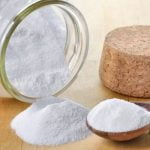
While nutritional science offers a wealth of research on eating right, it can also confuse you with its contradictory findings. For instance — while some studies claim that wine can kill harmful bacteria in teeth and gums, another claims that it can give you skin cancer. Periodically, there are diets/foods that are touted as the “next best thing for your health” (be it a fruit-based diet, dark chocolates or sea salt). But are they really good for you?
We get nutritionists Karishma Chawla of Eat Rite 24×7 and Dr Rajeswari Shetty, Head-Dietetics, SL Raheja Hospital to bust myths about popular ‘health’ foods and help you make better food choices:
1) Myth: Dark chocolate is good for you.
Fact: Studies suggest that dark chocolate contains less sugar and is loaded with antioxidants which help protect the heart. “It still holds a significant amount of calories and must be eaten in moderation, just like other sweets,” says Chawla.

2) Myth: Multigrain bread and whole-wheat bread is better than white bread.
Fact: Keep in mind: any bread comprises sugar, transfats and some amount of refined flour, though wholewheat bread and multigrain bread are better options. “Wholewheat bread is better than white bread because of high fibre and vitamin content. However, multigrain bread may be a combination of low GI grains like oats, wheat along with maize and refined flour, which may not make it as healthy as wholewheat bread,” adds Chawla.
3) Myth: Nutrition bars are nutritious.
Fact: Nutrition bars are a healthier option to junk food but should be eaten in only in dire situations, since they could be high in sugar and fat, says Chawla.

4) Myth: Loading up on fruits keep you slim.
Fact: Fruits are an essential section of the food pyramid and contribute to natural vitamins and fibre required by the body. “Fruits contain fructose, therefore excess consumption of fruits may also lead to high sugar levels and fat gain. Also, the timing matters. It is best is to finish consuming fruits in the first half of the day unless you are on a muscle gain diet,” says Shetty.
5) Myth: Brown eggs are more nutritious than white ones.
Fact: The only thing that the colour of an eggshell indicates is the colour of the feathers of the bird it came from — white hens lay white eggs, and red hens lay brown eggs. “The reason that brown eggs cost more is because hens that lay brown eggs usually eat more, and are larger as compared to those who lay white eggs, and are thus expensive to maintain. The taste may be different, but it does not differ in quality or nutritional profile,” says Shetty.

6) Myth: Fresh food is always better than frozen food.
Fact: “Fresh” produce is not procured directly from the farm. “It often travels long distances and is kept on grocery shelves, where it is subjected to air, heat and water. It can cause loss of nutrients, thus limiting its value,” says Shetty.
7) Myth: Sea salt has less sodium.
Fact: A gram of sea salt contains an equivalent amount of sodium as regular table salt. “Both are about 40% sodium, providing 2,300 milligrams of sodium per teaspoon,” says Shetty, adding, “However, because of its larger crystals, you may be inclined to use less of it.”

8) Myth: Red wine is good for you.
Fact: Doctors recommend one glass of red wine a day, which has a couple of health benefits (can counteract effect of high-fat/sugar diet, is good for heart health, and reduces risk of breast cancer). “Exceeding the limit can, in fact, counteract all the health benefits,” says Shetty.
9) Myth: It’s okay to have sports drink after you exercise.
Fact: Plain water is sufficient to quench your thirst and reload fluids lost after an intense workout, says Shetty. Consuming a sports drink after a treadmill workout adds on the calories due to the sugar content.

10) Myth: 100% fruit juice is best for you.
Fact: “Four ounces of 100% fruit juice is equivalent to one fruit serving. However, you should opt for the whole fruit, as a glass of juice contains more calories and lacks fibre,” says Shetty. A whole fruit also provides most of the vitamins and fibres; it will make you feel satiated and curb your food intake. Juice also removes the fibre which helps in digestion from fruits or vegetables, thereby slowing the process.
[“source=hindustantimes”]








